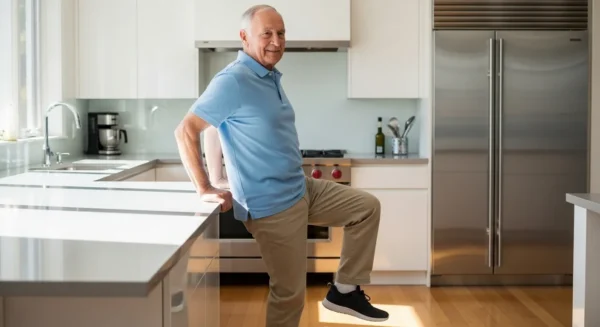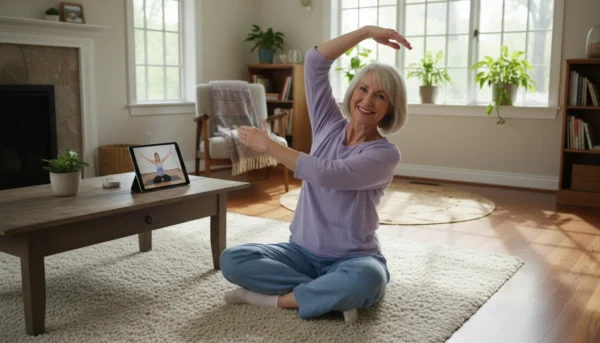
Key Signs It’s Time to Consult a Doctor
While improving home safety is a critical step, it’s equally important to pay attention to your personal health, as many falls are related to underlying medical conditions. You should schedule an appointment with your doctor if you experience any of the following. This is not a substitute for professional medical advice, but a guide for when to seek it.
- You Have Already Fallen: If you have fallen, even if you don’t think you were hurt, it’s important to tell your doctor. A fall can be a sign of a new medical problem that needs attention.
- Dizziness, Lightheadedness, or Vertigo: Feeling dizzy or like the room is spinning is a major red flag. These sensations can be caused by inner ear problems, dehydration, low blood pressure, or medication side effects.
- Changes in Your Vision or Hearing: If you find it harder to see obstacles or judge distances, it’s time for an eye exam. Similarly, hearing loss can affect your balance. Your doctor can refer you to the appropriate specialist.
- Foot Pain or Numbness: Pain, tingling, or numbness in your feet can make it difficult to feel the ground securely, affecting your stability. This could be related to nerve issues, arthritis, or other conditions.
- New Medication or Changes in Dosage: Some medicines, including sedatives, antidepressants, and some blood pressure medications, can cause drowsiness or dizziness. If you’ve started a new prescription and feel unsteady, speak with your doctor or pharmacist. Never stop taking a prescribed medication without medical guidance.
- Feeling Unsteady or Weak: If you notice that your legs feel weaker, you have difficulty getting up from a chair, or your balance just feels “off,” it’s a sign that you should be evaluated. Your doctor might recommend physical therapy to improve strength and balance.
- A Growing Fear of Falling: If you are so worried about falling that you are avoiding daily activities, please discuss this with your doctor. They can help you address the fear and find safe ways to stay active, which is vital for maintaining your strength and senior independence.


















